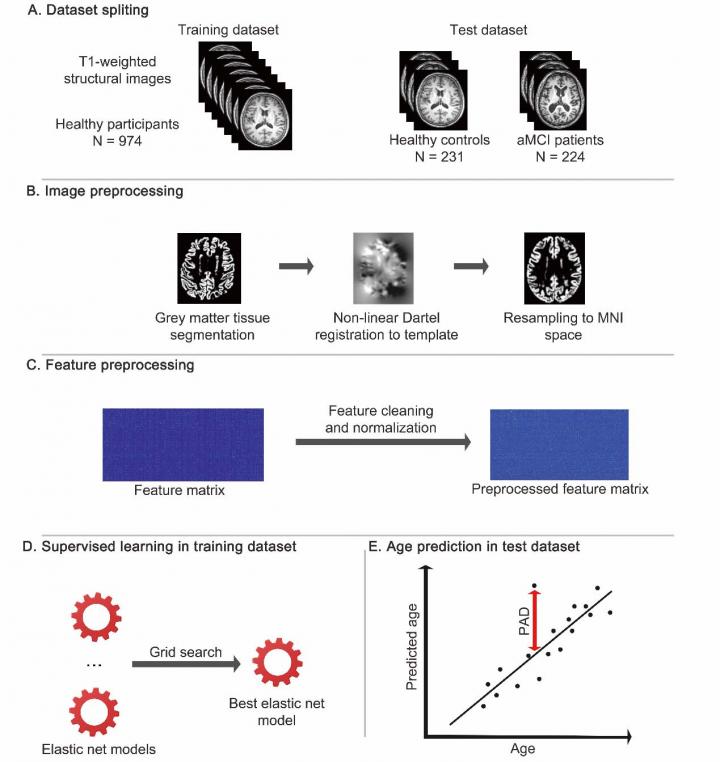OAK BROOK, Ill. – Researchers have developed an artificial intelligence (AI)-based brain age prediction model to quantify deviations from a healthy brain-aging trajectory in patients with mild cognitive impairment, according to a study published in Radiology: Artificial Intelligence. The model has the potential to aid in early detection of cognitive impairment at an individual level.
Amnestic mild cognitive impairment (aMCI) is a transition phase from normal aging to Alzheimer’s disease (AD). People with aMCI have memory deficits that are more serious than normal for their age and education, but not severe enough to affect daily function.
For the study, Ni Shu, Ph.D., from State Key Laboratory of Cognitive Neuroscience and Learning, Beijing Normal University, in Beijing, China, and colleagues used a machine learning approach to train a brain age prediction model based on the T1-weighted MR images of 974 healthy adults aged from 49.3 to 95.4 years. The trained model was applied to estimate the predicted age difference (predicted age vs. actual age) of aMCI patients in the Beijing Aging Brain Rejuvenation Initiative (616 healthy controls and 80 aMCI patients) and the Alzheimer’s Disease Neuroimaging Initiative (589 healthy controls and 144 aMCI patients) datasets.
The researchers also examined the associations between the predicted age difference and cognitive impairment, genetic risk factors, pathological biomarkers of AD, and clinical progression in aMCI patients.
“The predictive model we generated was highly accurate at estimating chronological age in healthy participants based on only the appearance of MRI scans,” the researchers wrote. “In contrast, for aMCI, the model estimated brain age to be greater than 2.7 years older on average than the patient’s chronological age.”
Combining the predicted age difference with other biomarkers of AD showed the best performance in differentiating progressive aMCI from stable aMCI.
“This work indicates that predicted age difference has the potential to be a robust, reliable and computerized biomarker for early diagnosis of cognitive impairment and monitoring response to treatment,” the authors concluded.
###
“Accelerated Brain Aging in Amnestic Mild Cognitive Impairment: Relationships with Individual Cognitive Decline, Risk Factors for Alzheimer Disease and Clinical Progression.” Weijie Huang, Xin Li, He Li, Wenxiao Wang, Kewei Chen, Kai Xu, Junying Zhang, Yaojing Chen, Dongfeng Wei, Ni Shu, Ph.D., and Zhanjun Zhang.
Radiology: Artificial Intelligence is edited by Charles E. Kahn Jr., M.D., M.S., Perelman School of Medicine at the University of Pennsylvania, and owned and published by the Radiological Society of North America, Inc. (https:/
RSNA is an association of radiologists, radiation oncologists, medical physicists and related scientists promoting excellence in patient care and health care delivery through education, research and technologic innovation. The Society is based in Oak Brook, Illinois. (RSNA.org)
For information on brain MRI and Alzheimer’s Disease, visit RadiologyInfo.org.
Media Contact
Linda Brooks
[email protected]





